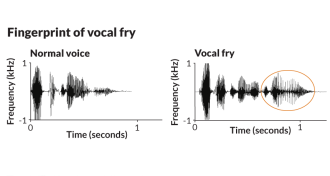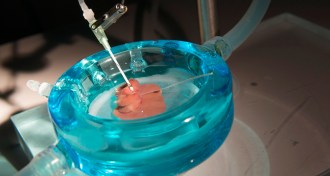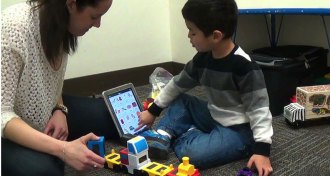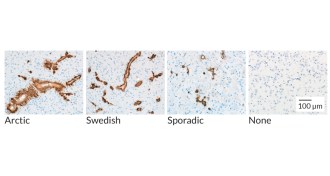Humans
Sign up for our newsletter
We summarize the week's scientific breakthroughs every Thursday.
-
 Science & Society
Science & SocietyMain result of Facebook emotion study: less trust in Facebook
Facebook’s controversial manipulation of emotional posts raises key questions about how to study online behavior.
By Bruce Bower -
 Psychology
PsychologyPeople will take pain over being left alone with their thoughts
Evidence suggests that people dislike solitary thought so much that some prefer electric shocks.
By Bruce Bower -
 Psychology
PsychologyVocal fry
At the lowest registers of the human voice, a creaky, popping sound known as vocal fry emerges.
-
 Health & Medicine
Health & MedicineSupercooling makes livers for transplants last longer
Supercooling a rat liver for transplant greatly increased an organ’s survival time outside the body, potentially opening the door for global allocation of human organs.
By Nsikan Akpan -
 Health & Medicine
Health & MedicineCandidate asthma and allergy drug passes early test
By suppressing an inflammation-causing antibody, an experimental drug can lessen allergy and asthma symptoms for months at a time.
-
 Neuroscience
NeuroscienceAutism may carry a benefit: a buffer against Alzheimer’s
Brain plasticity of people with autism may protect them from Alzheimer’s disease, scientists propose.
-
 Life
LifeTibetans live high life thanks to extinct human relatives
DNA shared by modern-day Tibetans and extinct Denisovans suggests people picked up helpful genes through interbreeding with other hominids.
-
 Health & Medicine
Health & MedicineBone marrow transplant could reverse sickle cell in adults
A relatively mild treatment involving radiation and chemo followed by a bone marrow transplant may treat sickle cell disease in adults.
By Nathan Seppa -
 Psychology
PsychologyTablet devices help kids with autism speak up
Talking iPads may help break the near-silence of some kids with autism.
By Bruce Bower -
 Health & Medicine
Health & MedicineKids’ me time may boost brainpower
Unstructured play may give kids more opportunity to exercise their executive function, complex cognitive function that includes resisting impulses and paying attention.
-
 Neuroscience
NeuroscienceShaking up the body may improve attention
Just two minutes of whole body vibrations improved young adults’ attention to detail.
-
 Neuroscience
NeuroscienceAlzheimer’s disease may come in distinct forms
Mouse experiments, if confirmed in people, imply that Alzheimer’s disease treatment should be personalized.